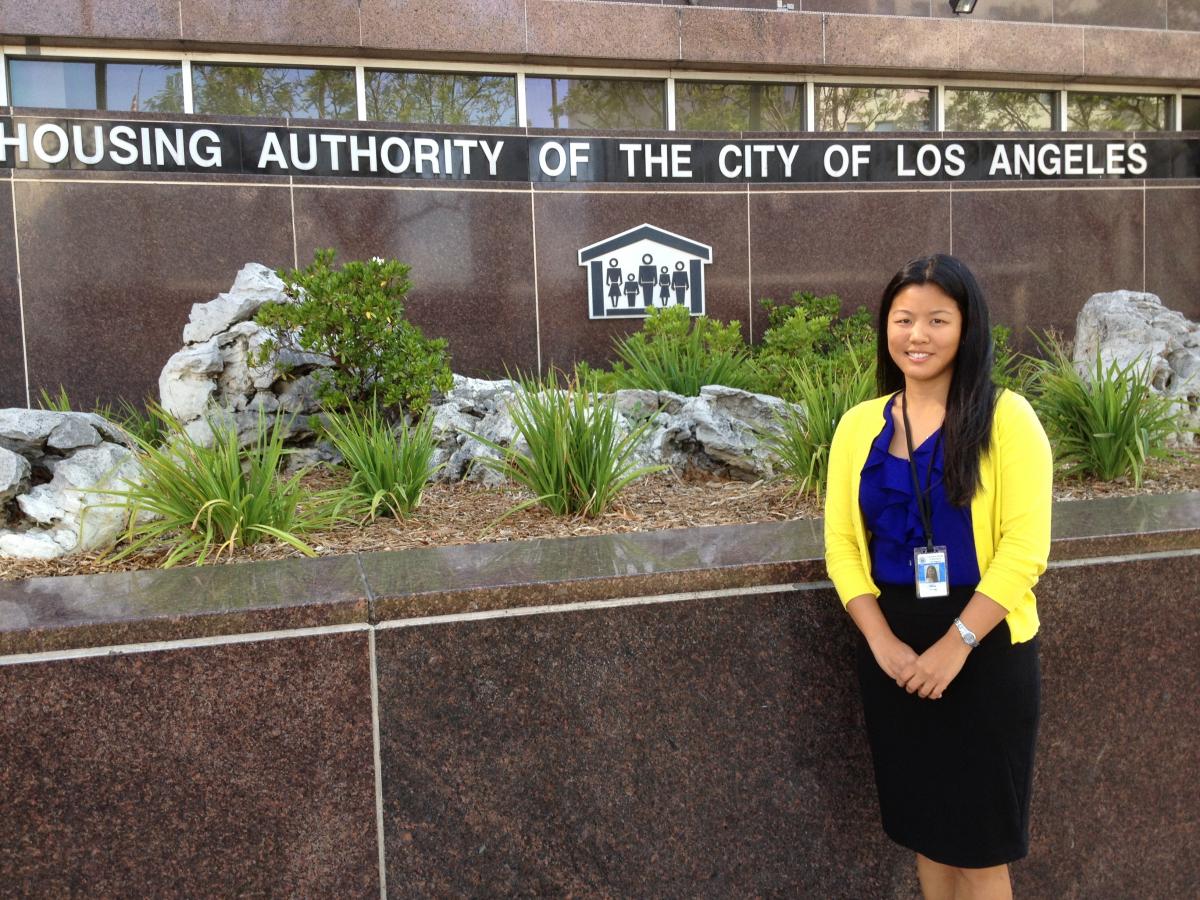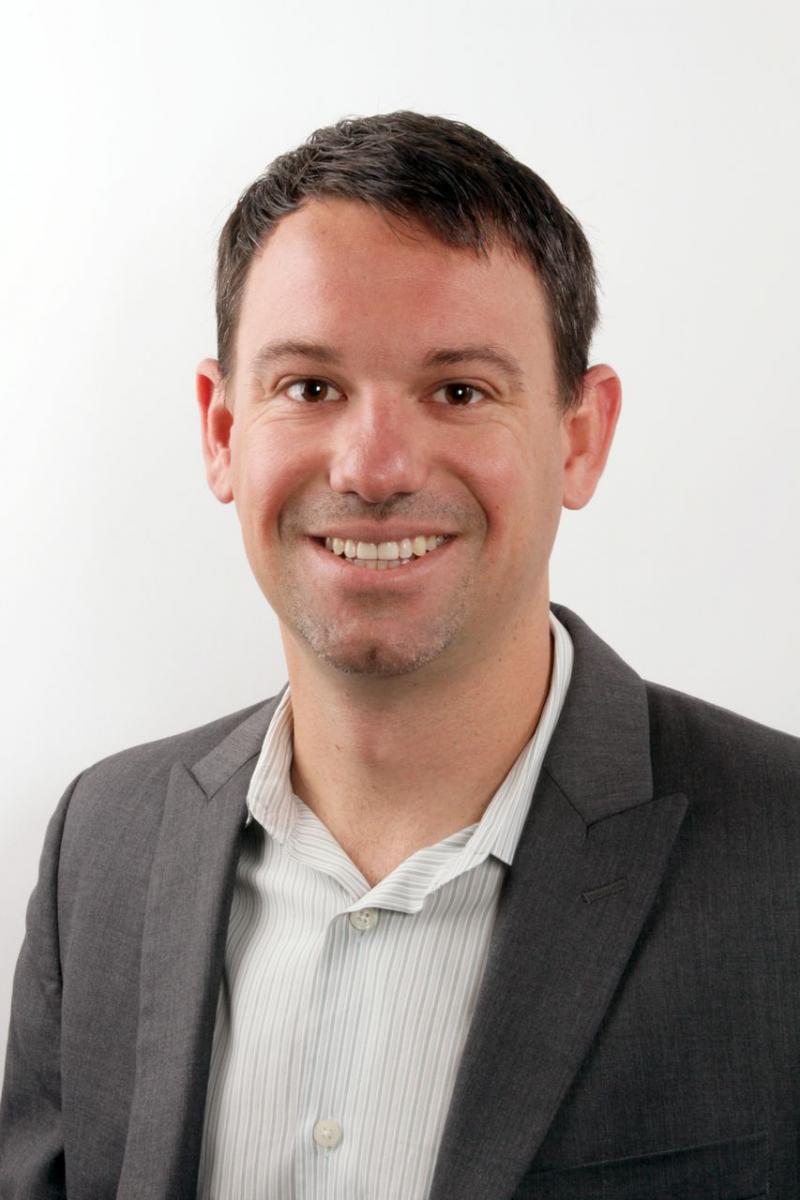EDF Climate Corps fellow | July 19, 2013
Lillian Cheng and Scott Hensley are two EDF Climate Corps fellows hard at work identifying energy efficiency opportunities at public housing authorities. Read on to learn about their environmental passions and how they are overcoming financial and organizational challenges to save energy and money.
Name: Lillian Cheng
Hometown: Jersey City, NJ
School: Columbia University
Host Organization: Housing Authority of the City of Los Angeles (HACLA)
Q: Why did you join EDF Climate Corps?
A: I was excited about the opportunity to immerse myself in a host organization, gaining practical business experience, while also concentrating on sustainability and climate change issues – two areas of focus, which I care deeply about. Additionally, the program’s reputation and the wealth of resources EDF provides to its fellows were particularly attractive.
Q: What have you been working on this summer?
A: I have been benchmarking HACLA’s utility usage and analyzing a variety of energy and water efficiency measures for each of the 14 public housing complexes. I am also developing a public announcement campaign to encourage HACLA’s residents to conserve energy and water. Lastly, I am researching energy efficiency financing mechanisms for the public housing sector.
Q: What has been the most difficult part about those projects?
A: Lack of funding has been the biggest challenge to date. Current federal policies effectively disincentivize energy efficiency projects due to the method in which annual operating subsidies are calculated. Data gathering has also been difficult across all 14 sites, as there are no centralized databases of on-site equipment and utility usage.
Q: What are some ways you’ve discovered that have been helpful in overcoming those difficulties?
A: Researching different types of financing structures, such as performance contracts, have been helpful in overcoming financial barriers. Visiting each of the 14 public housing projects in person and taking inventory of equipment has also been helpful in aggregating lists of on-site equipment and general usage patterns.
Q: What is the mark you want to leave on the world?
A: It is difficult to answer this question with eloquence in just a few sentences, but I hope that the ultimate result of my work in energy efficiency changes our perception of living in and with the built environment. Rachel Carson completely changed the way we looked at chemicals and pesticides in a groundbreaking way. I’d like my work to be as equally as revolutionary, changing the way we see and use finite energy and water resources.
Name: Scott Hensley
Hometown: Saint Croix, U.S. Virgin Islands
School: George Washington University
Host Organization: LINC Housing Corporation
Q: What is an interesting fact about you?
A: I used to swim competitively. I’ve had the chance to represent the Virgin Islands in international competitions, three World Championships and two Pan American Games.
Q: What are you working on this summer?
A: I’m helping the nonprofit LINC Housing Corporation codify the financial incentives and programs that exist in locations throughout California to allow them to retrofit as many of their affordable housing properties as possible.
Q: In tackling that project, what has been the most difficult part?
A: It’s been difficult because the overall picture of energy efficiency, specifically the picture of available and applicable financial incentives, is constantly changing. The challenge is to keep track of all incentives and take advantage of them in the most effective way possible. Specific to multifamily properties, the issue of the split incentives, where the tenants and property owners may not equally reap the benefits of energy efficiency investment, continues to be an issue that the industry is grappling with.
Q: What has been the best part about working at LINC Housing?
A: LINC has fully embraced my work and the essence of the EDF Climate Corps program. They’ve been open with information and access, as well as their vision. I’ve gotten to see people get really involved in advancing the agenda of sustainable practices at LINC’s properties.
Q: What is the mark you want to leave on the world?
A: I want folks who I work with, or who come in contact with my work to say, “This person is serious about what they’re doing and has made me think about a particular issue from different perspective that I didn’t see before.” To help people expand their minds and their efforts would be fulfilling for me.
This post is a part of our "Interviews with Tomorrow's Leaders" series. Stay tuned for more interviews with our 2013 EDF Climate Corps fellows!
About EDF Climate Corps
EDF Climate Corps (edfclimatecorps.org) taps the talents of tomorrow’s leaders to save energy, money and the environment by placing specially-trained EDF fellows in companies, cities and universities as dedicated energy problem solvers. Working with hundreds of leading organizations, EDF Climate Corps has found an average of $1 million in energy savings for each participant. For more information, visit edfclimatecorps.org. Read our blog at edfclimatecorps.org/blog. Follow us on Twitter at twitter.com/edfbiz and on Facebook at facebook.com/EDFClimateCorps.